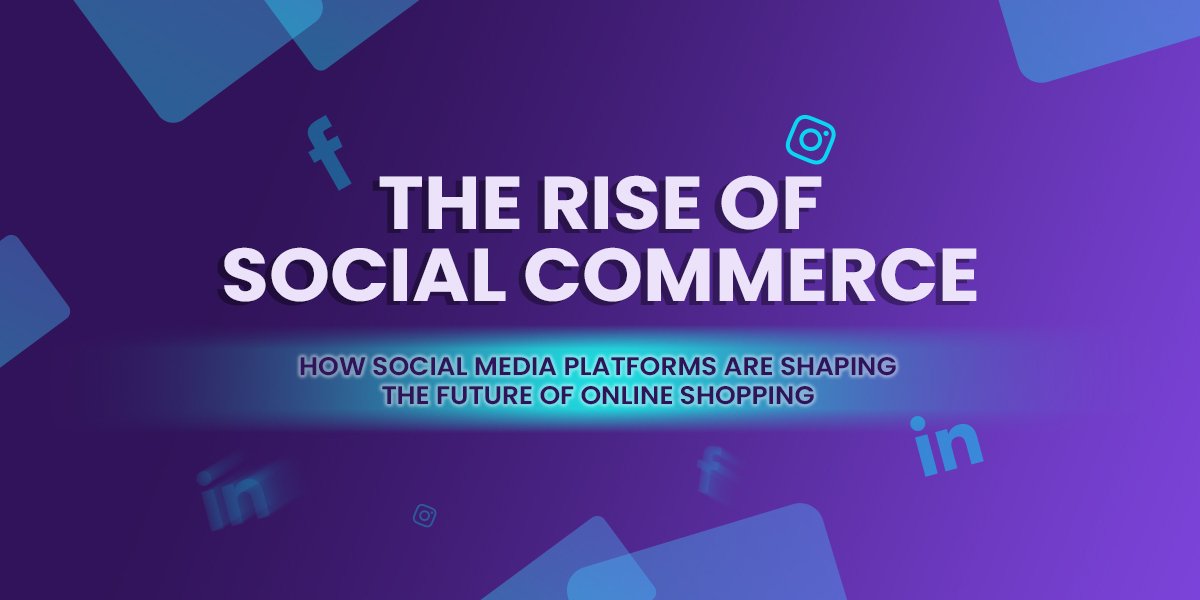In recent years, social media platforms have evolved far beyond their original purpose of connecting people. They have become powerful tools for businesses, particularly in the realm of e-commerce. Social commerce, the integration of social media and e-commerce, is rapidly transforming how consumers discover and purchase products online. For those looking to buy ecommerce business uk, understanding the impact and potential of social commerce is crucial. Here’s a look at how social media platforms are shaping the future of online shopping.
The Concept of Social Commerce
Social commerce refers to the use of social media platforms to facilitate online shopping. This includes enabling direct purchases through social media channels, leveraging user-generated content, and using social media features to enhance the shopping experience. Platforms like Facebook, Instagram, Pinterest, and TikTok have developed various tools and features that make it easier for businesses to sell products directly to their followers.
Key Trends in Social Commerce
- Shoppable Posts and Stories
One of the most significant developments in social commerce is the introduction of shoppable posts and stories. Platforms like Instagram and Facebook allow businesses to tag products in their posts and stories, enabling users to purchase items without leaving the app. This seamless shopping experience reduces friction and makes it more likely for users to make impulse purchases. For those looking to buy an e-commerce business in the UK, incorporating shoppable content into their social media strategy can drive sales and increase engagement.
- Live Shopping
Live shopping combines the immediacy and engagement of live streaming with the convenience of online shopping. During live shopping events, brands and influencers showcase products, answer questions in real-time, and offer exclusive deals. This interactive format builds excitement and urgency, encouraging viewers to make purchases on the spot. Live shopping is particularly popular on platforms like Facebook, Instagram, and TikTok.
- User-Generated Content
User-generated content (UGC) plays a crucial role in social commerce. Customers often trust peer recommendations more than traditional advertising. Encouraging customers to share their experiences and tag your brand in their posts can generate authentic content that resonates with potential buyers. For e-commerce businesses in the UK, leveraging UGC can build trust and credibility, making it easier to attract and convert new customers.
- Influencer Partnerships
Influencer marketing has become a cornerstone of social commerce. Influencers have the power to sway their followers’ purchasing decisions through authentic endorsements and recommendations. Partnering with influencers allows businesses to reach a broader audience and tap into niche markets. For those looking to buy an e-commerce business in the UK, collaborating with influencers can drive brand awareness and boost sales.
Benefits of Social Commerce
- Increased Reach and Visibility
Social media platforms have billions of active users, providing a vast audience for businesses. By leveraging social commerce, businesses can reach potential customers who may not have discovered their products through traditional channels. Social media algorithms also favour engaging content, increasing the visibility of shoppable posts and live shopping events.
- Enhanced Customer Engagement
Social commerce enables direct interaction between brands and customers. Features like comments, direct messages, and live chat allow businesses to engage with their audience in real-time, answering questions and addressing concerns. This level of engagement builds stronger relationships and fosters customer loyalty.
- Seamless Shopping Experience
One of the primary advantages of social commerce is the seamless shopping experience it offers. Users can discover, explore, and purchase products without leaving their favourite social media apps. This convenience reduces the likelihood of cart abandonment and increases conversion rates.
- Data-Driven Insights
Social media platforms provide valuable data and insights into customer behaviour and preferences. Businesses can use this information to refine their marketing strategies, optimise product offerings, and create personalised shopping experiences. For those looking to buy an e-commerce business in the UK, leveraging these insights can drive growth and profitability.
Challenges of Social Commerce
While social commerce offers numerous benefits, it also presents some challenges:
- Platform Dependency
Relying heavily on social media platforms for sales can be risky, as businesses are subject to changes in algorithms and policies. Diversifying sales channels and maintaining a strong presence on multiple platforms can mitigate this risk.
- Managing Customer Expectations
Social commerce requires prompt and effective customer service. Businesses must be prepared to handle inquiries, complaints, and returns quickly to maintain customer satisfaction. Investing in social media management tools and training staff can help address this challenge.
- Maintaining Authenticity
In the age of social media, authenticity is key. Businesses must strike a balance between promotional content and genuine engagement. Overly aggressive sales tactics can alienate customers, so it’s essential to prioritise authenticity and value in social interactions.
Social commerce is revolutionising the way consumers shop online, offering businesses new opportunities to connect with their audience and drive sales. For those looking to buy an e-commerce business in the UK, embracing social commerce can be a game-changer. By leveraging shoppable posts, live shopping, user-generated content, and influencer partnerships, businesses can enhance the shopping experience, increase reach, and boost engagement. As social media continues to evolve, staying ahead of the trends and adapting to new features will be crucial for success in the dynamic world of social commerce.

Leave A Comment